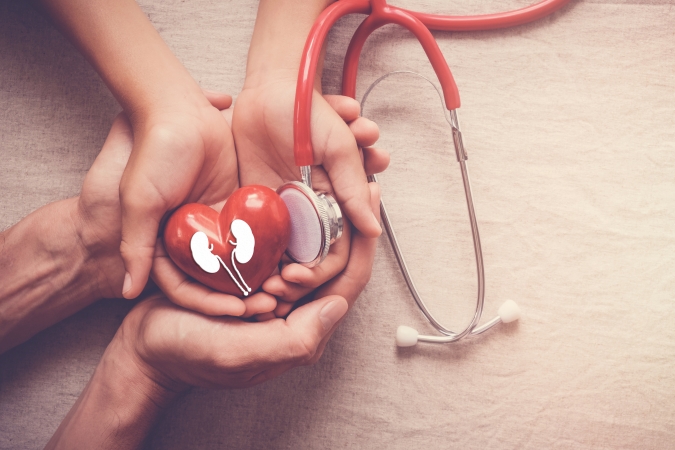
The Codependent Relationship Between Kidneys and the Heart
The heart and the kidney are two important parts of the body that work together to keep you going. What many people don’t realize is that when the heart is affected by your health, so too are your kidneys. The heart pumps oxygen-filled blood throughout the body, while the kidneys clean the blood and remove waste and excess water. The kidneys also help control blood pressure and balance different minerals in your blood such as sodium, phosphorus and potassium.
“When you have a healthy kidney or two healthy kidneys, but the heart, as a pump, cannot deliver enough blood flow, you have compromised kidney function,” said Richard Cline, MD, nephrologist. “We want to improve heart function because that will help the kidneys.”
Sometimes, medicine, used to treat heart disease, can negatively affect the kidney function. Patients with kidney or heart issues may retain extra fluid; have trouble breathing, urinate less frequently and gain weight; these symptoms may present with either kidney or heart disease.
“The most important thing is your diet. The average American consumes six grams of sodium a day (down from 10), we are asking them to cut down to two grams a day. It takes about two to three weeks to unaccustomed your taste buds to sodium, I recommend people to go to the grocery store, walk down the spice aisle and checkout all the spices in the spice aisle that don't have salt mixed with them,” explained Dr.Cline. The goal is to cook food with interesting tastes, without including the extra salt. Your taste buds will soon grow accustom to the decreased sodium intake and recognize food with too high of a level of sodium.
“It's important for patients and their family to make sure that they’re eating the right things that don't defeat the purpose of the medications we're giving them,” said Dr.Cline.
Tips to eat heart and kidney healthy foods:
- Try asking for dishes at restaurants without salt.
- Avoid processed foods such as canned soups, canned vegetable, cured meats, TV dinners, salty and snack foods.
- Choose fresh foods, such as fruits and vegetables.
“Listen to your heart, listen to your body, moderate your diet and increase your physical activity,” says Dr.Cline. Choose to start slow and work your way up, so in the long run you will be able to make better choices for your heart and kidneys with a long-term impact.